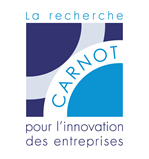COVID-19: Institut Imagine and Cerba HealthCare are partnering to test for patients likely to develop severe symptoms

In 2020, researchers at Inserm, Université de Paris, and Assistance Publique–Hôpitaux de Paris (AP-HP), in collaboration with the university hospital organisation Institut Imagine (Hôpital Necker-Enfants malades AP-HP), which has been granted “Institut Carnot” certification through The Rockefeller University and the Howard Hughes Medical Institute in New York, identified the leading genetic and immunological causes responsible for at least 15% of serious forms of Covid-19. Today, this same French and American team, jointly lead by Jean-Laurent Casanova and Laurent Abel* at the Institut Imagine and The Rockefeller University, is joining forces with Cerba HealthCare, a leading stakeholder in medical diagnostics, to transform these discoveries into clinical applications and screen individuals who are more likely to develop a severe form of the disease and tailor their treatment accordingly.
A commonality among 15% of severe cases: impaired type-I interferon activity
At the start of the Covid-19 pandemic, Dr.Jean-Laurent Casanova and his team created an international consortium, Covid Human Genetic Effort, to identify the genetic and immunological factors responsible for the reason some patients experience serious forms of the disease. They focused their research on patients who were hospitalised with severe Covid throughout the world. These patients all had a quantitative or activity-related type-I interferon (type-I IFN) impairment. Type-I interferons are immune system molecules that normally serve a powerful anti-viral function.
In two articles published in the journal Science1,2, researchers discovered changes in genes that were already understood to regulate the immune responses controlled by type-1 IFN, especially in reaction to the flu virus, in 3-4% of patients with a severe form of the disease. These mutations decreased the production of these interferons. In an even more surprising development, they identified an auto-immune reaction in 10-11% of other patients with serious Covid symptoms. These individuals produced autoantibodies that specifically targeted type-1 IFNs. In a recent article published in Journal of Experimental Medicine, these same anti-interferon autoantibodies were also identified as the cause of severe reactions to yellow fever live vaccine in around one-third of patients from an international cohort3, confirming the discoveries of the Imagine teams.
From ground-breaking research to a screening test
“These studies have revealed the crucial role of type-I interferons in the immune response against SARS-Cov-2 and the development of serious forms of the disease. The genetic variants that decrease their production or the auto-antibodies that neutralise their effect are present before the virus infects the body and play a critical role in the outcome of the disease. Some serious forms of Covid-19 could therefore be prevented by testing the general population to detect any auto-antibodies and by administering interferons at the onset of infection for certain patients”, Jean-Laurent Casanova and Laurent Abel explain.
Against this backdrop, Institut Imagine decided to form a partnership and sign its first collaboration agreement with Cerba HealthCare, a leading stakeholder in the fields of medical diagnostics and specialized biology.
“Cerba HealthCare’s expertise; knowledge of specialised medical biology, from prevention to screening and diagnostics; and its international network are all major assets. This collaboration will help us reach the next level by transforming our improved understanding of the disease into a concrete application designed to help patients. In reality, we are talking about adapting precision genetic medicine to the context of a pandemic”, says Dr. Stanislas Lyonnet, Director of Institut Imagine.
Jérome Sallette, Scientific Director of Cerba HealthCare, adds, “Our partnership with Institut Imagine perfectly embodies our shared vision of the need to discover diagnostic tools and new treatments at a faster pace, particularly by building more bridges between different ecosystems. The reputation, expertise, and commitment of the teams at Institut Imagine are clearly a driver of success in this project, for which we have mobilised all of our areas of expertise. While the epidemic does lead to a race to innovate, it also underscores more than ever the importance of cooperation between public and private stakeholders.”

